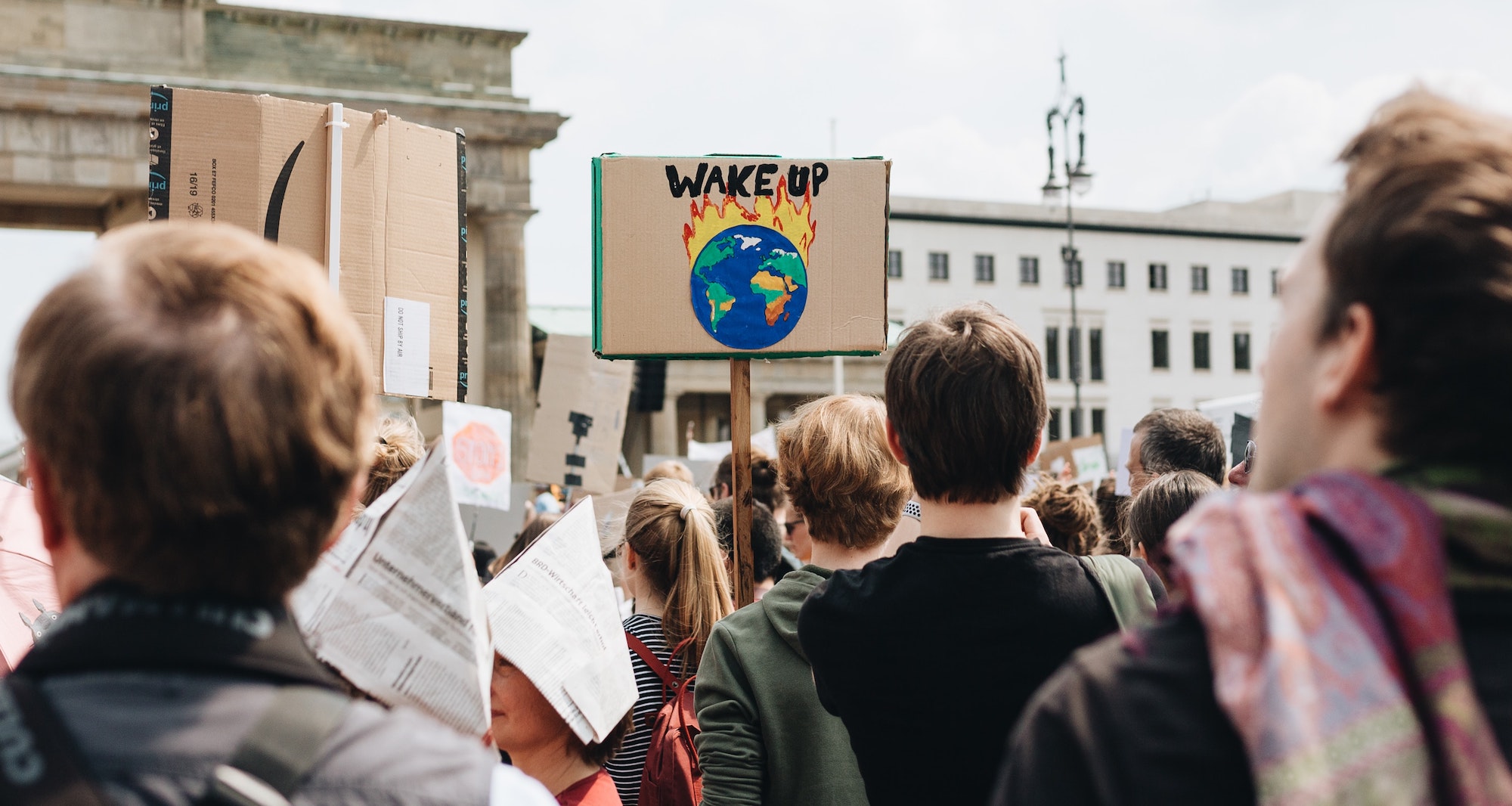Guilt in the Limitations of Individual Climate Change Action

by Sorcha McNally
Western University BHSc Student
Wed, 15 Sep 2021
We have all seen them. “Hottest year on record,” “World losing battle against deforestation”. These headlines can be seen in every media source, magazine, streaming service and perhaps most compelling for students, social media. There are thousands of accounts online that post content to incite emotions whether it be fear, disgrace, or anger, influencing individuals to repost on their account. Companies can extend their reach to an exponential number of impressionable young minds. These statements can be beneficial where these raise awareness and donations; however, in many cases, including my own, these can provoke a different emotion: hopelessness.
As a single individual, any action that I take is like a raindrop in an ocean. If I never use plastic again (an unrealistic goal), I would be reducing the 14.4 million tons of microplastics by a negligible amount in the grand scheme of things. So, I am faced with a conflict that I believe many individuals my age battle: what is the point? If I forget my reusable grocery bag, is it worth it to drive home (itself harmful for the environment) or do I just take the more convenient route of using a plastic grocery bag? If an individual like myself believes that their actions do not make an impact, then it can be difficult to motivate oneself to take the harder road ahead.
Another emotion that arises when I come across these headlines is guilt. Climate change comes from human action and, in an opposing way to positive action, it can feel like each misstep you take whether it be using a plastic water bottle or opting to drive instead of walking, is a major contribution to global warming. This pressure puts a toll on an individual like me who tries to make global health-conscious decisions but struggles to make a significant contribution to change. This is especially difficult as individual action although necessary and positive is overshadowed by the overwhelmingly negative impact that large corporations make on the health of our planet. The guilt that I feel as an individual also may be understood as misplaced. It is not only about the steps we take to live more sustainably; it is also about the companies we support. By continuing to consume their products, we are essentially condoning their practices and encouraging them to continue harming our ecosystem past the point of redemption. It feels almost comical most days to reflect on my day to day so-called “action” in the face of knowledge that even as I act ethically, corporations continue to dump millions of pounds of by-product waste into our water supply or shrank forests by 1.3 million square kilometres to make way for cattle ranching or commercial buildings (Derouin, 2019). Adding to my sense of hopelessness, many large companies take action to demonstrate their eco-friendly practices but then, in reality, I learn their actions are either mandated by law or have a null effect as their manufacturing process overshadows any positive action they claim to make (Watson, 2017). Furthermore, the lengths these companies go to promote their new sustainable projects can cost more than the actual project themselves, demonstrating the real reason behind their “positive change”. It makes consumers feel better about purchasing their products and lulls them into a false sense of environmental stewardship. This tactic has been in practice for decades and was coined corporate greenwashing by environmentalist Jay Westerveld who saw companies like Chevron hiding their questionable actions behind videos of their employees hugging animals (Watson, 2017). Corporate greenwashing produces a cycle of hidden, devastating effects on global health while corporations preach their so-called environmentally friendly campaigns to make the consumer feel justified in their actions.
As a consumer who is concerned about the current trajectory our planet is taking in terms of global health practices, I am again left questioning a path I could take that will elicit meaningful long-term change. Unfortunately, there is no one size fits all approach that works for all consumers. There are limits to the action an individual can take that can translate into real-world solutions but in the end, being mindful of the media you consume and the practices you support will encourage positive growth.
References
Derouin, S. (2019). Deforestation: Facts, Causes & Effects. Livescience. Retrieved from https://www.livescience.com/27692-deforestation.html
Watson, B. (2017). The troubling evolution of corporate greenwashing. Chain Reaction, (129), 38-40.
Photo by Nico Roicke on Unsplash
